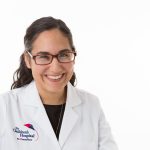Longtime Washington Rheumatology Alliance (WRA) President Jeff Peterson, MD, of Western Washington Medical Group, Bothell, Wash., and a clinical associate professor of medicine at the University of Washington, Seattle, knows there is an urgent need to recruit and train the next generation of rheumatologists and rheumatology professionals to close the widening workforce gap.1

Dr. Peterson
“We have approximately 70 rheumatologists in Washington state,” Dr. Peterson says. “Yet many rural areas don’t have any [rheumatology providers].” In central Washington, he says, Wenatchee has two rheumatologists and Yakima has just one.
It’s not uncommon for patients in some of Washington’s more rural areas to drive three hours to see a rheumatologist, according to Dr. Peterson. The emergence of telehealth has allowed some patients in remote areas access to rheumatology care, but the uneven distribution of high-speed internet access still serves as a barrier to care.
A lack of rheumatologists in rural areas of Oregon and Idaho adds to wait times in Washington-based rheumatology practices because patients with rheumatic diseases in those neighboring states travel to Washington for care.
“For pediatric patients, there are even fewer choices for rheumatology care,” Dr. Peterson says. “There are only 350 pediatric rheumatologists in the entire country, with most at teaching hospitals. In Washington, Seattle Children’s Hospital has a pediatric rheumatology training program.”
To help meet the demand for rheumatology care, Dr. Peterson approached the University of Washington School of Nursing five years ago to offer a rheumatology-based, three-month clinical rotation to third-year students enrolled in the school’s Family and Adult Gerontology Nurse Practitioner (NP) programs.
“Our hope is that NP students who complete their clinical rotations in a rheumatology office [will] decide to stay in the field,” Dr. Peterson says. So far, five nurses have gone through the rheumatology rotation, with at least three opting for a career as a rheumatology nurse practitioner.
In his role as WRA president, a position he has held since 2004, Dr. Peterson encourages rheumatologists in the state to hire these NPs. He has also spoken to other state rheumatology organizations about WRA’s alliance with the University of Washington’s NP program and encouraged colleagues to consider launching similar programs in their own states.
Success Story

Dr. Fessel
As a student at the University of Washington, Melissa Fessel, DNP, ARNP, hadn’t yet chosen a specialty field when she learned about the opportunity to participate in a clinical preceptorship in rheumatology.
“I had an interest in geriatric medicine, but didn’t know a lot about rheumatology,” Dr. Fessel says. With Dr. Peterson serving as her physician preceptor, Dr. Fessel worked in his office for two to three days each week for the duration of the rotation, learning about rheumatic disease. The experience piqued her interest in a specialty she hadn’t previously considered.
“It was wonderful to have a great preceptor like Dr. Peterson who was willing to teach me about rheumatology,” Dr. Fessel says. “He emphasized how important it was to check in with patients, to see if their condition has changed since the last visit and to help them maintain wellness.”
Now a nurse practitioner with Seattle Rheumatology Associates, Dr. Fessel says she enjoys working with rheumatology patients to help them achieve the best possible quality of life.
“Patients will come in who can hardly get out of bed because of their pain and stiffness,” Dr. Fessel says. “The medications we prescribe can be life changing. The addition of just one drug can help these patients get back to living.”
Some patients have specific treatment goals in mind, and Dr. Fessel says helping them reach their goals is extremely rewarding. “I remember one patient who sought treatment because he wanted to be able to hold a golf club again,” she says. “Golfing was his favorite pastime, and he was devastated when he had to stop due to pain and deformities. After treatment, he was able to resume golfing with a combination of medication and a modification to the grip on his golf club.”
Loan Forgiveness
In addition to taking action to increase the ranks of rheumatology professionals within the state, the WRA is active in advocacy, including efforts to offer pediatric rheumatologists loan forgiveness if they commit to serving in an underserved community in Washington for a specified period of time.
“There’s currently a bill in Congress to fund the Pediatric Subspecialty Loan Forgiveness Program [PSLRP],” Dr. Peterson says.
The PSLRP is a loan repayment program for pediatric providers in primary care, subspecialties and dentistry who serve rural and underserved areas. Reauthorization of this program was included in the CARES Act, but without any funding for it to operate. The WRA is joining the ACR in asking Congress to fund the program.
At the state level, says Dr. Peterson, “Washington’s 2021–23 budget instructs the Washington Health Corps to consider pediatric rheumatologists for state loan forgiveness programs.”
Members of the WRA are also concerned about a new insurance policy that requires rheumatologists to prescribe the biosimilar Inflectra (infliximab-dyyb) rather than the reference drug Remicade (infliximab), forcing patients who have been stable on one drug to be switched to another.
“I have no problem starting a biosimilar in a new patient, but changing a stable patient from Remicade to a biosimilar is not good medicine and can result in a disease flare,” Dr. Peterson says. “We’ve written to the Washington Attorney General and the Coalition of State Rheumatology Organizations to appeal this decision.”
Another ongoing issue for the WRA is making prescription medications more affordable for patients. One obstacle: insurance copay accumulator adjustment programs (CAAPs) that require patients to pay a high out-of-pocket cost for prescriptions before their deductible is met. A 2020 ruling from the Centers for Medicare and Medicaid Services allows insurers to implement these programs without restriction.
“These programs extend the amount of time it takes a patient to meet their deductible and reverse the impact of manufacturer cost-sharing assistance for prescription drugs,” says Dr. Peterson. “Recently, several states have passed legislation to prohibit the use of CAAPs.” Members of the WRA are advocating for similar legislation.
Looking to the Future
WRA will hold its annual conference Sept. 16–18 at the Sleeping Lady Mountain Resort in Leavenworth, Wash.
“We have one day devoted to advocacy and one to science,” Dr. Peterson says. “We try to make the conference both fun and informative, and we encourage fellows to attend the conference free of charge.”
This year’s conference marks the 15th for WRA, and Dr. Peterson says the alliance hopes to continue growing its membership. The alliance currently has 35 members, including nurse practitioners. All rheumatologists and rheumatology professionals are welcome to attend the annual conference.
Linda Childers is a health writer located in the San Francisco Bay Area.
Reference
- Battafarano DF, Ditmyer M, Bolster MB, et al. 2015 American College of Rheumatology workforce study: Supply and demand projections of adult rheumatology workforce, 2015–2030. Arthritis Care Res (Hoboken). 2018 Apr;70(4):617–626.



